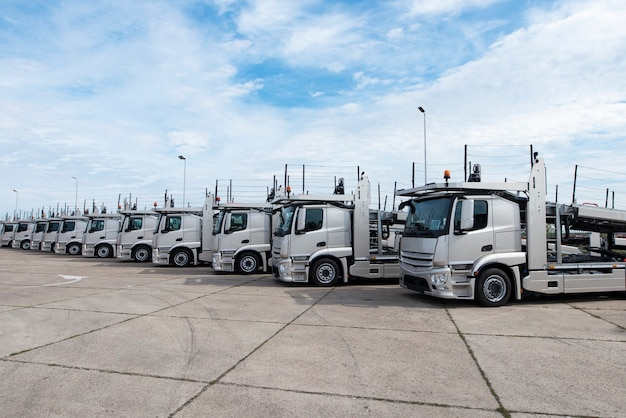Logistics is a critical component of the global economy, acting as the lifeline that connects producers, suppliers, and consumers. It ensures that goods and services move efficiently through supply chains, enabling businesses to meet demand and deliver value to their customers. As industries evolve and consumer expectations grow, logistics continues to be a dynamic and essential field.
What is Logistics?
Logistics encompasses the coordination and management of resources, including goods, services, and information, as they move from suppliers to end-users. It involves a wide range of activities, such as transportation, warehousing, inventory control, and order processing. The ultimate goal is to optimize these processes to achieve cost efficiency, timely delivery, and customer satisfaction.
The Role of Logistics in Business
- Supply Chain Efficiency
Logistics serves as the backbone of supply chains, ensuring that materials and products flow seamlessly between suppliers, manufacturers, distributors, and retailers. Efficient logistics minimizes delays, reduces waste, and enhances productivity across the supply chain. - Competitive Advantage
Companies with robust logistics systems can respond quickly to market changes, deliver goods faster, and provide superior customer service. This agility often translates into a significant competitive edge. - Cost Management
Effective logistics strategies help businesses control costs by optimizing transportation routes, consolidating shipments, and reducing inventory holding expenses. - Customer Satisfaction
In today’s fast-paced world, customers demand speed, accuracy, and reliability. Logistics ensures that products reach customers on time and in perfect condition, building trust and loyalty.
Key Functions of Logistics
- Transportation
Transportation is a core function of logistics, involving the movement of goods by land, air, or sea. It requires careful planning to select the most cost-effective and reliable modes of transport while considering factors such as distance, urgency, and product type. - Warehousing
Warehousing involves the storage of goods until they are needed for distribution. Modern warehouses are equipped with advanced technologies like automated storage systems and real-time inventory tracking to improve efficiency. - Inventory Management
Balancing supply and demand is a critical aspect of logistics. Proper inventory management ensures that businesses have enough stock to meet customer needs without overstocking or incurring unnecessary storage costs. - Order Fulfillment
This involves processing customer orders, picking and packing items, and ensuring accurate and timely delivery. Smooth order fulfillment is essential for maintaining customer satisfaction.
Challenges in Logistics
The logistics industry faces several challenges that require innovative solutions:
- Global Supply Chain Disruptions: Events like pandemics, natural disasters, and geopolitical conflicts can disrupt supply chains and delay deliveries.
- Rising Costs: Increasing fuel prices, labor shortages, and inflation drive up logistics costs.
- Sustainability Pressures: Companies must adopt eco-friendly practices to reduce their environmental impact while maintaining efficiency.
- Technological Integration: While technology offers significant benefits, its implementation requires investment, training, and adaptation.
Trends Shaping the Future of Logistics
- Digital Transformation
Technologies like blockchain, Internet of Things (IoT), and artificial intelligence are revolutionizing logistics by enhancing transparency, automating processes, and providing real-time insights. - Sustainability
Green logistics is gaining momentum as businesses adopt sustainable practices, such as using renewable energy, reducing packaging waste, and optimizing delivery routes to lower carbon emissions. - E-commerce Growth
The rapid rise of e-commerce has transformed logistics, with an increased focus on last-mile delivery solutions, same-day shipping, and efficient returns management. - Autonomous Vehicles and Drones
Innovations like autonomous trucks and delivery drones are poised to revolutionize transportation, reducing costs and improving efficiency in the logistics sector.
Conclusion
Logistics is the cornerstone of modern commerce, enabling businesses to connect with customers and operate efficiently in a competitive marketplace. As industries face new challenges and opportunities, the role of logistics continues to expand, driven by technological advancements and evolving consumer demands.
Companies that prioritize logistics as a strategic function can not only streamline operations but also build a resilient and future-ready business model. In an interconnected world, the importance of logistics cannot be overstated—it is the engine that powers global trade and economic growth.
4o






